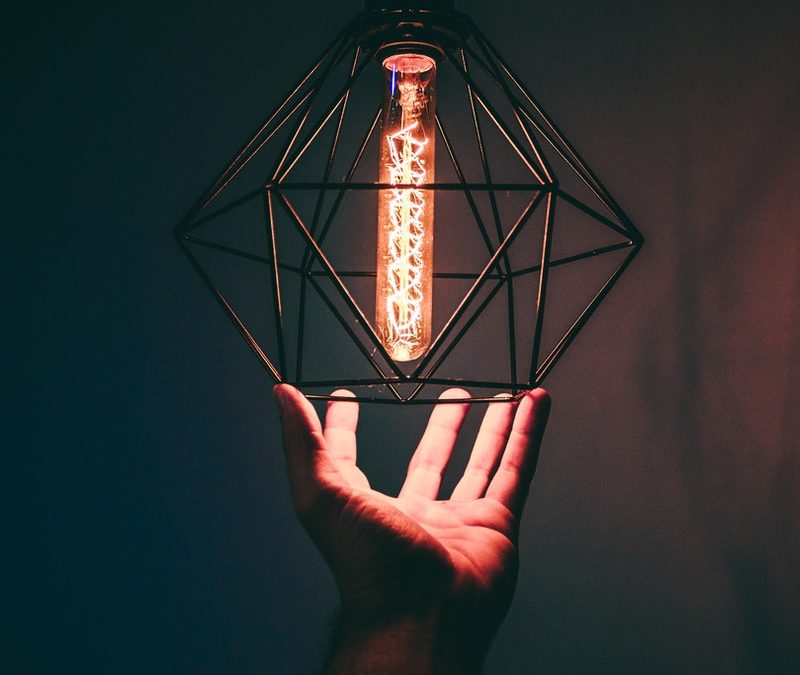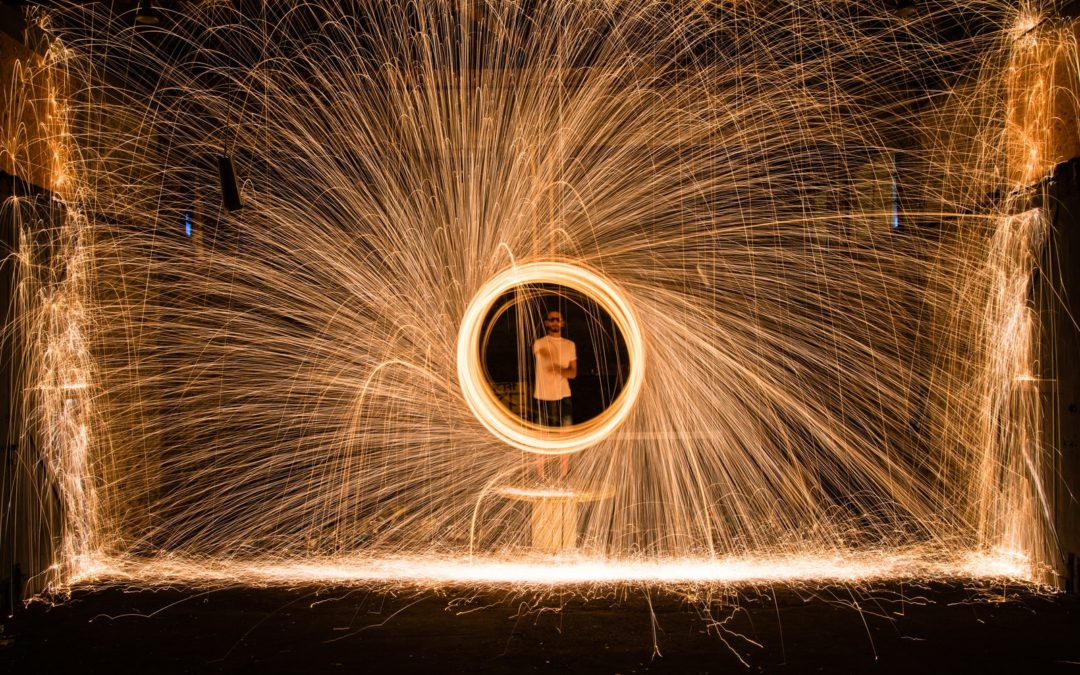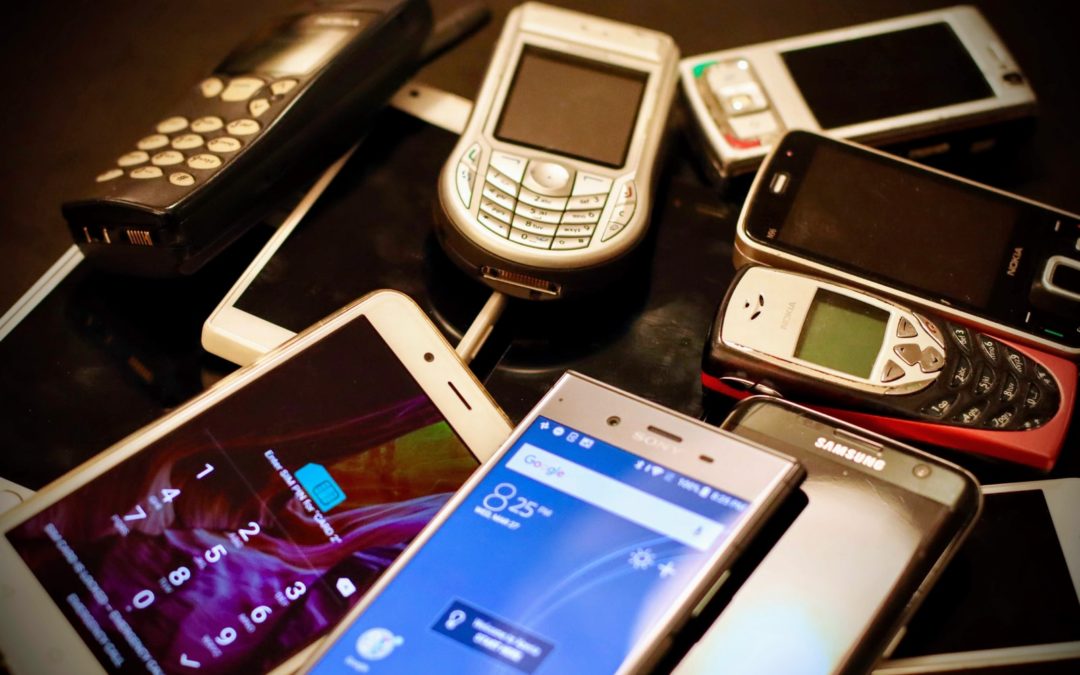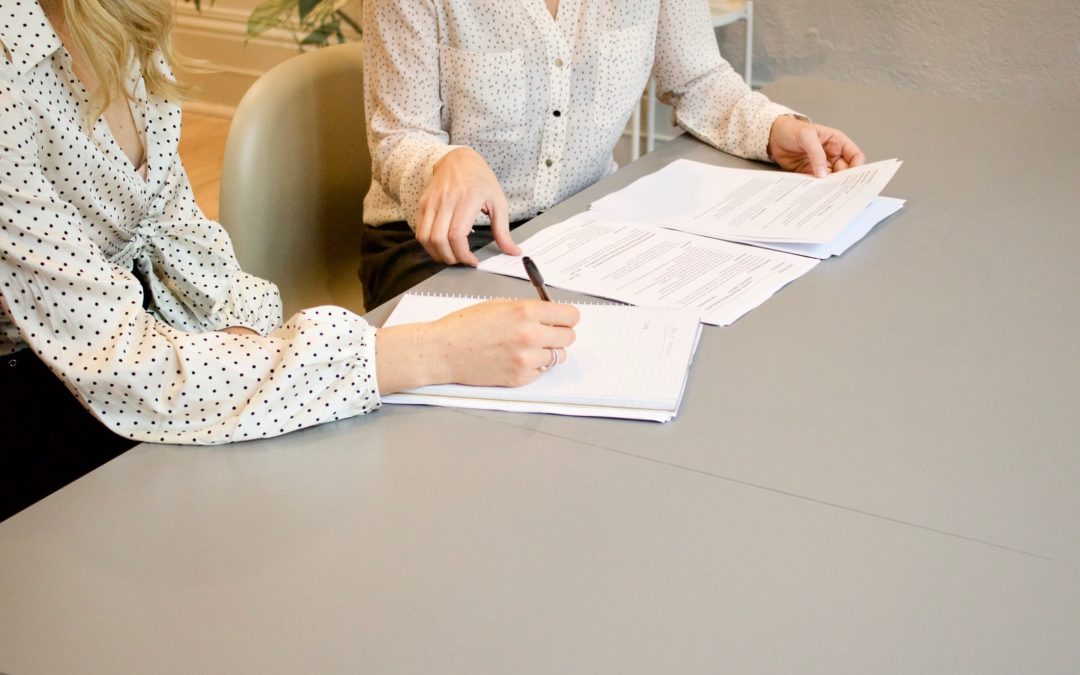
by admin | Sep 11, 2022 | Declutter
Energy is the movement and vibration between molecules and atoms. It is the stimulation between people. It is the way that a particular piece of music fills a room but also the response it triggers in your brain and emotions as you pick up on the melody or tune in to receive the specific lyrics. You might choose the music when you have a meal with a friend. You would certainly be conscious of the music in your chosen playlist when you have friends around to celebrate a birthday or a special event. You are selecting the energy for the occasion.
Cherish your Special Things
In the same way you are bringing energy into your house with the possessions you bring in, with the art you place on the wall, with the fabrics that adorn your furniture. You think you feel good about a box of letters on a shelf in your study that were written to you by a grandparent or a best friend. You occasionally take out an school report that was written about you by a favourite teacher when you were a happy seven year old child and saw the whole world ahead of you. When you pull up a blanket on a chilly autumnal day and take comfort from knowing it has been made of pieces of fabrics that were once a childhood eiderdown, a grandmother's scarf and a service uniform belonging to a parent, this is good energy. When you look at old photos of a relative you never really liked, but which you feel awkward throwing out, whether for guilt or misguided loyalty, this is low energy that you don't need to hang on to. The colours, the textures and the emotions you attach to the things within every room of your home, all of this, either contributes to or takes away from the energy of your home.
Check your Digital Energy
If we ever doubted our connection to the world around us, or thought we were separate from the world and living in a bubble, then the great technology advances we have at out fingertips serves to prove the truth of this connectivity. Digital energy is a vast aspect of the energy in our homes. The movement of data, of the pulsing of electrons in and through our home space. We are constantly connected to the external world through our laptops and cell phones. That fast moving, invisible activity consists of data all around us.
The advantages are massive and such technology can help us live more positive lives, provide us with home delivery of millions of items (not so good when you are looking to let go of clutter!), make contact with friends who lives hundreds of miles away or across the globe, to bring access to jobs where we can find what will suit us, allow us to find a partner through dating apps, give us the edge for investment tips and know-how, or simply allow us to plan a holiday or a trip without the need to go into a travel shop for such information. All of these and a hundred other advantageous uses of technology and connectedness are good for us. But we have to guard against overload on ourselves. You must take care of the potential drain on your personal energy that such digital activities can have.
Why do you feel tired after an hour online just browsing and following digital connections through adverts or social networks, articles or video clips that entertain? Partly because of the huge variety of visual images you see in that hour, but also you feel tired because the energy is moving so fast through and around you. You can be too open to the draining impact of this frenzy. Give yourself times when you are not online, when you are not connected digitally. You can switch of wifi while you sleep. You can choose to leave your handset in another room when you are spending time with loved ones. You can switch off sound based notifications and limit the time you spend engaged with or sucked in to social media. They are forms of high speed energy and you need to choose whether they contribute to or take from your own levels of energy and aliveness.
Ask yourself some simple questions about how you use the spaces in your home and why :
Which area of the home do you feel happiest in?
Where is the emotional heart of the building?
When you have guests to visit do they move naturally to stand and chat in and around the kitchen or an open living area? Do they want to sit outside on the deck with you or gather around a sofa and comfy chairs?
Are there pictures on the walls of your home that you don't like, but have never let go of? Can you understand the emotions that are triggered or blocked when you consider these images?
When you are following a painting or drawing or collecting hobby at home, where do you notice yourself sitting?

by admin | Aug 28, 2022 | Declutter
Your home is alive and existing as energy. You are not separate from your home because it is a part of you. It is a reflection of how you think and feel, just as much as you develop by the way you personally interact with the space that is offered to you. The rooms of your home are a representation of how you think and feel, a reflection of your own energy.
Everything in life is composed of energy, of molecules and tiny atoms clustered together as different forms of 'stuff'. Wood and plastic are different materials, but each composed of a set of compressed atoms. Oak, pine, larch and sycamore are all wood types, albeit with a different composition. They each have their own form of energy and this is what you pick up on when you touch the different things in your home. Add to the physical makeup of each item, the emotional energy attached to every piece of furniture, glassware, DIY tool, or art work, books, clothing and bikes.
If your home is a place of harmony, love, hope and goodness, then it stands to reason that it should first be a place of sanctuary for you. It needs to be a space where you can be relaxed and completely yourself. For this to happen to the best degree possible you need to tailor the space you live to meet your own character, aspirations and to work with and support your own value system. This is where you spend your most relaxed time, where you are private and alone, as well as where you can relax with friends and with loved ones. A home is where you can be at your most vulnerable and most intimate. Here you can be completely true to your best you.
To fulfil so many functions energy moves, shifts, surrounds and connects the spaces within your home. You are sensitive to light, texture, movement, to stillness, to chatter and to music. In a location where you eat, love, bathe, create, worry, aspire and give momentum to ideas and projects, this connecting energy is everything. Distraction, concerns, low energy, sad areas, fluctuating temperatures, and anything which pulls you from living your best life at home will harm those aspirations, slowing down your creative and communicative elements. These sentient or emotional forms of energy will hold you back from the best. Visual distraction, untidy rooms, chaotic kitchens or unclean bedrooms and living rooms all conspire to prevent you living at your best levels of energy.
You cannot have friends round for drinks or a meal if the space for them is not made special, cleaned and tidied. The visual pull of dirty laundry in a guest bathroom, or of dirty and unwashed crockery on a kitchen surface, or of shoes and coats seemingly abandoned on the hall floor - none of this is good energy. Such presentation of your home space is neither uplifting, welcoming or special. Why do you tidy up for guests? Why do you want to create a clean and tidy environment for visitors? Forgive me for stating the obvious, but you put effort in so that the energy of your home is positive, welcoming and active for your visitors. That is just the publicly visible elements of your home and the energy associated with those situations.
Just as obvious is the energy present in your private areas of the home. Wardrobes, or laundry basket, or the drawers where you keep your underwear and handkerchiefs, ties and scarves or mufflers. When you open a drawer and it is a disorganised mess, you feel heavy and fed up, knowing that you now have to hunt around to find two separate socks and make a pair. Instead, if you open that same drawer and every separate sock has been paired correctly with it's other half, or your hankies are folded neatly and lined up behind one another and easy to see, how do you feel now? That sensation of ease you get when you know where everything is, this too is energy presenting itself to you.
There is much less stagnant energy in the drawer or the organised wardrobe. You are helping yourself by lifting the energy in your home. When you are not distracted by mess, clutter or chaos, you have higher energy to be you and to do what you want to do. Faster and with greater focus.

by admin | Aug 14, 2022 | Declutter
The place you call home is a special place because you intentionally chose it. Of course there may be a few exceptions where you were given no option about living there, or because you inherited it. Bummer! Seriously though, you did choose to rent or buy or move to this place which you call your own space, the place you live and where you have stamped your style.
When you stand in the front doorway of this place how do you feel?
On the first day you saw it as an empty space and before you started to bring in your own things, can you recall the emotions you felt as you looked around? It's no accident that you live here.
Sure, there may have been a round about way by which you made the journey to end up in this location and in this apartment or house, but this is where you are. Deal with it and accept it. Now you can truly make the space your own.
The place you call home is connected with all the other spaces around you and the world you inhabit. It reflects you by the way you store things there and by what you bring into the home. As your habits and collections and accumulation changes, so too does the mood and energy of the home adapt to this. Your space is a being in the sense that it is a happening, adapting, changing place as a result of how you, your possessions and your guests, visitors and family members interact with it. Even if the items in the building do not change or swap around for months at a time and the general energy of the house is low, quiet and close to static, you are still moving in the space, the contents of the food cupboards are constantly changing, post is delivered, new items from shopping trips come into the space and other things are used, finished with and removed from the space. In this most basic way there is subtle change each and every day, even though at first glance we might not realise this.
Your home is alive and existing as energy. You are not separate from your home because it is a part of you. It is a reflection of how you think and feel, just as much as you develop by the way you personally interact with the space that is offered to you. The rooms of your home are a representation of how you think and feel, a reflection of your own energy.
Everything in life is composed of energy, of molecules and tiny atoms clustered together as different forms of 'stuff'. Wood and plastic are different materials, but each composed of a set of compressed atoms. Oak, pine, larch and sycamore are all wood types, albeit with a different composition. They each have their own form of energy and this is what you pick up on when you touch the different things in your home. Add to the physical makeup of each item, the emotional energy attached to every piece of furniture, glassware, DIY tool, or art work, books, clothing and bikes.
Ask yourself some simple questions and listen to your answers:
- Which area of the home do you feel happiest in?
- Where is the emotional heart of the building?
- Which part of the house do you gravitate towards when you feel unwell because in this space you feel cosy, safe and cared for?
If your home is a place of harmony, love, hope and goodness, then it stands to reason that it should first be a place of sanctuary for you. It needs to be a space where you can be relaxed and completely yourself. For this to happen to the best degree possible you need to tailor the space you live to meet your own character, aspirations and to work with and support your own value system. This is where you spend your most relaxed time, where you are private and alone, as well as where you can relax with friends and with loved ones. A home is where you can be at your most vulnerable and most intimate. Here you can be completely true to your best you.

by admin | Aug 4, 2022 | Declutter
In our current state of digital connection and constant online access there is always a temptation, a distraction away from the core values we once driven by. How many hundreds of times have you sat at your laptop or device with the intention of taking 10 minutes to connect and catch up before getting on with the core task that you wanted to focus on and to achieve for the day, only to find yourself two hours later, adrift in the weird world of social media and without the energy or perhaps even the memory for that quickly forgotten priority? Apparently, we can check our mobile phone as much as 150 times in a day! Yesterday I read an article which claimed we spend 2 hours and 40 minutes scrolling through social media in a day! That's just an average.
Everyone wants your attention, from Facebook, to Instagram, to LinkedIn, Spotify, and Snapchat. You receive updates from coupon companies, cinema promotions, local events, requests for a Like from a business, an invite from a friend who is starting a side hustle. Someone likes a Tweet you made, so you look at their profile and their feed for anything of interest. The technology behind the cell phone in your hand is far greater than a corporate super computer from twenty years ago. Each time you check a feed or a status update your brain gets a dopamine kick that serves your need for more points of data consumption. Friends of friends or even perhaps your own friends are - according to social profiles - leading lives of incredible ostentation, shopping, overseas travel and perfect family lives. Or so it seems when you click and watch, click and gawp, click and waste your time.
You have the ability to use online access thoughtfully and consciously, so why don't you. If you work eight or nine hours a day and come home to look at your screen while eating instead of connecting with family, if you lose hours every evening in wandering from one digital feed to another, then you can lose dozens of hours in a week. That same time, when used with deliberation and intent, can deliver to you additional free time for family, for love, for the accomplishment of your goals and for the investment of your energies into activities and hobbies that you love.
Spending time in these chosen blocks of time is what makes you who you are at your best, allows people to enjoy your company, and gives you that connection to the values you hold so important and which - if I were to ask you about them - you could reel off easily. What matters is not being able to talk about them, but having the ability, capacity and available time to spend your energies in such actions.
Rather than engage constantly with your screen take time to consciously look at the world we inhabit, to have eye contact with people as you walk on a street and travel on a bus or a tube. To look up at the signs and art and window displays and at the great kindness and beauty around us. To connect with people rather than pass them by without even realising they were in the same space as you.
You can create some simple rules for yourself, or guidelines if you want to be less dramatic or at risk of your own control.
Here are some practical steps to reduce time lost forever to the state I refer as 'device addiction'.
1. Switch your phone off for certain times during the day
2. Don't have it in your bedroom at night.
3. Have regular times when you are not accessible by phone.
4. When you are in one call do not put the first person on hold to take the second call.
5. Use voicemail as an aid to help you reduce stress, only pick up messages on a regular basis, perhaps twice a day or four times a day and not just because your phone beeps to tell you there is a message.
6. Have separate email accounts for different roles of your life so you only check the one that is relevant at a given moment.
7. Check your personal email just once a day. It really can wait.
8. Check your work email at certain times throughout the day, perhaps twice in the morning and again twice in the afternoon.
9. Use a footnote in your outbound emails that suggests the timescale within which you will review and respond.
10. Set up an auto responder to incoming email that clearly states your availability or lack of availability to respond.

by admin | Jul 21, 2022 | Declutter
Financial clutter is less obvious to the eye than old furniture, unused toys, or ugly crockery. Bank statements, paperwork in envelopes or piles of unopened post, these items can be without order and difficult to navigate.
Are all your paper bank statements in one place and easy to access in just five minutes? The chances are high that you don't keep all your financial information in one place, that as new paperwork comes in to your home it does not systematically end up in the same place that you keep and store your financial records. This is simple to change, and requires only that you become conscious of it. Resolve this quickly and simply by keeping all financial records, statements and passbooks in the same location in your home.
Start with your bank statement and look at all the transactions for a two month period and particularly at the regular and committed payment arrangements you have set up. Are any of these for Shopping Clubs you no longer participate in, for incentive and Discount Clubs where you joined to save money and yet never have enough money to spend to qualify for the Sports and Leisure or Dining Club activities you were seduced by to begin with. If you find any of these regular payment programmes, cancel the payment and cancel the commitment. Just three or four such items at $10 to $20 a month will save you $300 - $400 and more this year. Keep that money in your account and get the potential benefit of being able to ask for a discount the next time you are going to buy something significant and have the cash available for the barter.
What about the files, binders and unopened Financial Post that is stashed randomly around your home? Get these all out and in one session go through them. If you have any papers that are more than a year old shred and dispose of them. A small shredder for your home will occupy far less space than the volume of unneeded statements, letters, documents and general papers that are taking up space in your life and adding to the stagnant energy. If you run a business from home you will need to check with your Tax or Revenue office about the timescale for keeping all financial transaction records, and comply with these requirements. In many cases keeping the detail for the past twelve months and good annual summaries for the previous five to seven years is more than adequate for you and allows for a lot of discarding.
Stay up to date with Financial Apps that allow you to track your spending or monitor your investment monies easily and all from your phone or laptop. Have you looked at installing a Water Meter to your home so you only get billed for your actual use? How about asking your Energy Company for a free Smart Meter to monitor your home usage of gas and electric?
I maintain several properties that we rent out to individuals on a room by room basis. Each house requires a folder for utilities, tax records, rental income, finance costs, cleaning services, purchase of furniture, bedding, carpets and maintenance work. Each house has a subsection within a folder for tenants, all filed alphabetically by surname. One year after a tenant leaves I shred all records of correspondence with them and all their personal details. The housing paperwork is our largest block of paperwork for any ongoing theme and still it only fills a dozen large binders. I don't keep those at home, but instead maintain the paperwork in a small office cum storeroom in one of the buildings. The new space for paperwork has come about by adding upright bookshelves to a small room and using these for keeping stuff neatly and off the floor. Before I got organised and started the letting go process, I had paperwork all over the place and wasted a few hours each week looking for documents. In the old days the paperwork, post and document files, tool kits, tins of paint, and new bedding sets messily took up a room that has now been let as a tidy and well furnished bedroom. The difference in getting organised for just this one example can easily be measured by the $100 a week rent I receive on that bedroom. The paperwork is organised and easy to reference while the income on that house has gone up by $5,200 a year from a space that was poorly used.
Deal with each monthly summary statement as it comes in, whether by paper or email. Check the expenditure against your own receipts. Take any purchase receipts from your purse or wallet on a certain day each week and put them in a place where you do your finances. When your bank statement comes in simply check off the purchase receipts against the larger monthly statement. Everything should match. If you are self-employed and doing your own tax returns save each weekly envelope and date it for easy reference later. When the full tax year is done you can provide the bank statements and the receipts to your book-keeper and you keep your costs down because you are in control.
Get clear on your financial paperwork and you will naturally find yourself better able to make decisions about what to do with your assets so that they start to work for you, building your future wealth and financial freedom. The clearer you get with your finances the harder your money can work for you.

by admin | Jul 7, 2022 | Declutter
If you are in a financial muddle and wanting to understand the trouble, then brew yourself a coffee, grab those statements and start to hunt for the clues that can help you get back in control. Within those columns of money in and out are the trends and spending patterns that reflect your approach to money.
Look at all transactions for a two month period, particularly at the regular and committed payment arrangements you have set up. Are any of these for Shopping Clubs you no longer participate in, for incentive and Discount Clubs that you joined to save money and yet never have enough money to spend to qualify for the Sports and Leisure or Dining Club activities you were seduced by to begin with. If you find any of these regular payment programmes, cancel the payment and cancel the commitment. Just three or four such items at $10 to $20 a month will save you $300 - $400 and more this year. Keep that money in your account and get the potential benefit of being able to ask for a discount the next time you are going to buy something significant and have the cash available for the barter.
Can you see some transactions you don't recognise? Raise these with your bank and have them check for fraud. Identity theft and false transactions are increasing as fraudsters become more skilled at making tiny deductions to accounts, on the correct idea that most people only query large deductions they don't recognise. It doesn't need to be fraud. You may have a load of small repeat payments for apps or services you have stopped using, but which you have never cancelled.
Are there regular small purchases such as Coffee and Snack Food to and from work each day which might constitute $10 or $20 per day, but which add up to several thousand spent over the course of a whole year? Making up a flask of coffee at home in the morning will save you a huge amount of money that can instead stay in your account and be used for investment and long term income. Take a food pack-up with you a couple of times a week as much for the variety of taste and flavour as for the money savings.
What about files, binders and unopened Financial Post stashed around your home and taking up useful shelf space or occupying cupboards? Get these all out and in one session go through them. If you have any papers that are more than a year old shred and dispose of them. A small shredder for your home will occupy far less space than the volume of unneeded statements, letters, documents and general papers that are taking up space in your life and adding to the stagnant energy.
Stay up to date with Financial Apps that allow you to track your spending or monitor your investment monies easily and all from your phone or laptop. Have you looked at installing a Water Meter to your home so you only get billed for your actual use? How about asking your Energy Company for a free Smart Meter to monitor your usage of gas and electric? With these installed you can actively manage the way you use energy in your home, often adjusting your behaviour simply because you become aware of the cost of usage. It can be tiring to deal with the potential mountain of financial paperwork that comes in to your home. Realise that no matter where the paperwork comes from you can choose what to do with each letter or email.
In your personal finances deal with each monthly summary statement as it comes in, whether by paper or email. Check the expenditure against your receipts. An easy way to do this is to take any purchase receipts from your purse or wallet on a certain day each week and put them in a place where you do your finances. If you don't have any specific filing area at home, each week take the expense receipts for that week and place them in an envelope. When your bank statement comes in simply check off the purchase receipts against the larger monthly statement. Everything should match.
The benefits of being more financially organised include greater peace of mind because you know where things are, more relaxation because you spend less time worrying and less wasted money because you are not repeat buying things that you thought you lost among the clutter. Good decisions are not supported by chaos, disorganisation or by having to look for information. As you sort, organise and structure your financial records you will naturally be drawn to look at their performance and the creation of more financial security and enhanced rewards from your activity.
In becoming better organised with household finances you can get closer to your financial goals, precisely because you know what your money is doing and how it is performing. By getting clear on financial paperwork, statements and information, you will naturally find yourself better able to make decisions about what to do with your assets so that they start to work for you, building your future wealth and financial freedom. The clearer you get with your finances the more likely it is that your money will work better for you.





